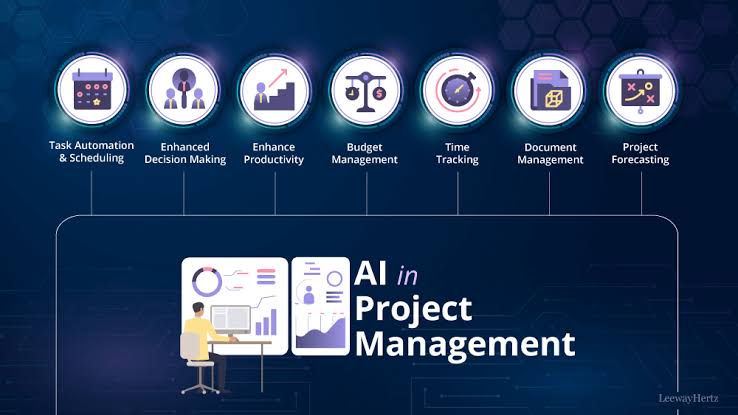Harnessing the Power of AI for Enhanced Efficiency and Success
Artificial Intelligence (AI) has made significant strides across various industries, and project management is no exception. Integrating AI into project management processes can revolutionize how projects are planned, executed, and monitored, leading to improved efficiency, accuracy, and success rates. This article explores the multifaceted impact of AI on project management and how it can empower project managers to achieve their goals more effectively.
1. Enhanced Data Analysis
AI algorithms excel at processing large volumes of data quickly and accurately. In project management, AI can analyze historical project data to identify patterns and trends. This analysis can provide valuable insights into project timelines, budget allocations, and resource utilization, enabling project managers to make informed decisions.
For example, AI can predict potential project delays by analyzing past project schedules and identifying common bottlenecks. With this foresight, project managers can proactively address issues before they escalate, ensuring projects stay on track.
2. Automated Task Management
One of the most time-consuming aspects of project management is task allocation and tracking. AI-powered tools can automate these processes by assigning tasks based on team members’ skills, availability, and workload. This not only saves time but also ensures that tasks are distributed optimally, preventing burnout and maximizing productivity.
Additionally, AI can monitor task progress in real-time and send automated reminders and updates to team members. This helps maintain momentum and keeps everyone aligned with project goals.
3. Risk Management and Mitigation
Risk management is a critical component of successful project management. AI can enhance risk identification and assessment by analyzing vast amounts of project data and external factors. By recognizing patterns and anomalies, AI can predict potential risks and their impact on the project.
For instance, AI can analyze market trends, regulatory changes, and economic indicators to foresee risks that may affect the project. Project managers can then develop contingency plans and mitigation strategies to address these risks proactively.
4. Improved Communication and Collaboration
Effective communication and collaboration are essential for project success. AI-powered chatbots and virtual assistants can facilitate seamless communication within project teams. These tools can answer queries, provide updates, and even schedule meetings, ensuring that team members stay informed and engaged.
Moreover, AI can analyze communication patterns to identify potential misunderstandings or conflicts. By flagging these issues early, project managers can address them promptly, fostering a collaborative and harmonious work environment.
5. Resource Optimization
AI can optimize resource allocation by analyzing project requirements, team capabilities, and availability. This ensures that resources are used efficiently, reducing waste and enhancing productivity. For example, AI can match the best-suited team members to specific tasks based on their skills and experience, resulting in higher quality outputs.
Additionally, AI can predict future resource needs based on project progress and historical data. This allows project managers to plan and allocate resources effectively, preventing shortages and overages.
6. Enhanced Decision-Making
AI can support project managers in making data-driven decisions by providing real-time insights and recommendations. For instance, AI can analyze project performance metrics and suggest adjustments to improve efficiency and outcomes. This empowers project managers to make informed decisions quickly, enhancing project agility and responsiveness.
Moreover, AI can simulate various project scenarios, allowing managers to evaluate the potential outcomes of different strategies. This helps in selecting the most effective approach and minimizing risks.
7. Performance Tracking and Reporting
AI can streamline performance tracking and reporting by automating data collection and analysis. This provides project managers with real-time visibility into project status, progress, and performance metrics. AI-powered dashboards and reports offer comprehensive insights, enabling managers to monitor key performance indicators (KPIs) and make data-driven adjustments.
Furthermore, AI can generate predictive analytics, forecasting project outcomes based on current trends and data. This allows project managers to anticipate challenges and take proactive measures to ensure project success.
The integration of AI into project management has the potential to transform how projects are managed, enhancing efficiency, accuracy, and success rates. By leveraging AI’s capabilities in data analysis, task automation, risk management, communication, resource optimization, decision-making, and performance tracking, project managers can achieve unprecedented levels of productivity and effectiveness. As AI continues to evolve, its impact on project management will only grow, making it an indispensable tool for project managers worldwide. Embracing AI in project management is not just a trend but a strategic move towards a more efficient and successful future.

Leave a comment